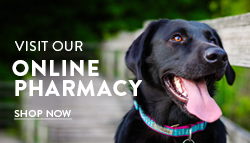Blog
Unless you have had a pet in the past, you may find that there is a lot more to caring for one than you expect. Some of the responsibilities that you have, such as feeding and washing your pet, may be obvious, but others – including proper dental care – are not. In fact, in many cases, it does not occur to an inexperienced owner to brush their pet’s teeth and visit a veterinary dentist until symptoms of a problem occur.
Dental care is actually a vitally important part of your pet’s overall health and wellbeing, and by ensuring that your furbaby has teeth that are in good condition, you can not only aide their retention, but also protect your animal from a range of painful and debilitating problems. Poor oral health in pets has been proven to cause conditions such as periodontal disease and infection. Not seeking prompt treatment for your pet’s dental issues can also cause further problems, such as prolonged discomfort for your animal and expensive dental bills for you.
Why are dental x-rays necessary?
One crucial aspect of veterinary dental care includes taking x-rays of your pet’s teeth as and when necessary. Many vets like teeth structure to that of an iceberg – the tip is visible, but as much as 75% of each tooth is hidden beneath the surface – or in this case, below the gum line. This means that in order to do a truly thorough assessment of the health of your pet’s teeth, our vet needs to see what the entire tooth looks like, both above and below the gums.
A pet dental x-ray can provide:
- Information about the condition of the actual tooth
- Information about the condition of the jaw joint
- A look at the appearance and health of the soft tissue inside the mouth
- A ‘baseline’ to compare subsequent visits to
- A way to identify dental problems, including tooth decay, un-erupted teeth, decay and damage
- An indicator of more serious problems such as tumors and/or deterioration of the density and quality of the jaw bone
In many instances, dental x-rays have revealed problems including periodontal disease, abscesses, unerupted teeth, cysts, abnormal tooth development, and even tumors.
Are dental x-rays safe?
Radiation exposure is a serious condition, but the necessary precautions will always be taken to protect your pet from harm. Small amounts of occasional radiation are considered to be safe, and our veterinarian will ensure that x-rays will only be taken when truly necessary. Our vet will always seek your permission ahead of scheduling a dental x-ray.
Dental x-rays require your pet to lay completely still. While this often means that your animal will need to be sedated or completely anesthetized first, it also ensures that your furbaby is laying completely still during the procedure and cannot be affected by the movement or sounds in the room. This helps to make the process much safer and the images produced much more accurate.
Dental x-rays are an important part of your pet’s care and will help keep your pet healthy and happy. If you have any concerns about the procedure, contact and speak to our veterinarian who will be happy to give your further advice.






